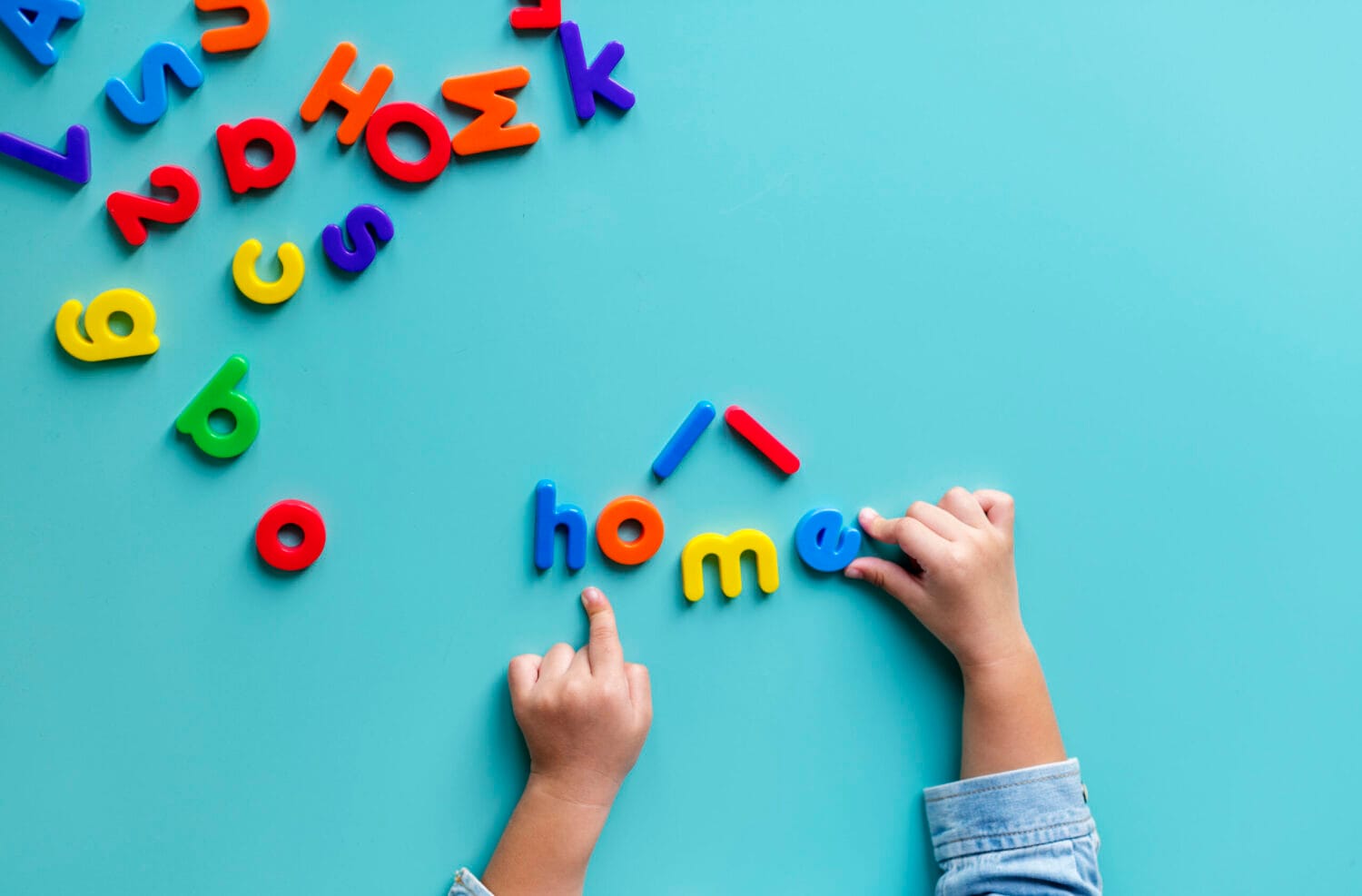Why is Language Development Important?
From their first coo to their first words, and eventually, to forming complex sentences, language acquisition is a journey filled with wonder and excitement.
Language is the foundation of communication, thought, and social interaction. It allows children to express their needs, desires, and emotions. Strong language skills can also impact academic success, problem-solving abilities, and overall cognitive development.
How Does Language Develop?
Language development is a complex process that involves several areas:
- Receptive Language: This refers to a child’s ability to understand language. It includes listening to sounds, recognizing words, and comprehending sentences.
- Expressive Language: This involves a child’s ability to use language to communicate their thoughts and feelings. It encompasses vocabulary, grammar, and pronunciation.
How Daily Interactions Contribute to Language Development
Did you know that language development begins from the very first moments of life? Even seemingly simple interactions, such as playing peek-a-boo and singing nursery rhymes, are incredibly powerful. These “serve and return” exchanges – where you respond to your baby’s coos and babbles with smiles, sounds, and playful words – build strong foundations for their language skills.
A 2018 study titled “Beyond the 30-million-word gap: Children’s conversational exposure is associated with language-related brain function” documented the significant impact of nurturing, supportive interaction and “sensitive caregiving” on both brain function and structure.
The study found that:
“Children who experienced more conversational turns exhibited greater activation in left inferior frontal regions (Broca’s area) during language processing, which explained nearly half the relationship between children’s language exposure and verbal abilities.“
This research highlights the critical role of early parent-child interactions in shaping language development and underscores the importance of creating a language-rich environment for young children.
Research on how shared reading contributes to increased vocabulary
Key Findings: This study found that early shared reading experiences significantly predict better reading scores later in childhood. It also concluded that having more books in the home significantly improved children’s reading skills later in life through how often children read for pleasure, and the development of strong language skills in the early years
The language of play: Developing preschool vocabulary through play following shared book-reading
Key Findings: Adult-supported play was more effective than free play with the same toys. Expressive gains were greater for words reviewed during play versus with pictures.
Parent language with toddlers during shared storybook reading compared to coviewing television
Key Findings: Parent language is more frequent, rich, and complex during shared reading compared to coviewing TV with toddlers. Reading produces more and richer verbal interactions than TV and is thus more likely to benefit early language development
The Role of Early Years Education and Care in Language Development
At Step by Step Nursery, we provide a nurturing and stimulating environment that fosters all aspects of language development. Our highly qualified educators employ a variety of evidence-based strategies to engage children in language-rich experiences such as:
- Storytelling and Book Reading: We share a wide range of stories, poems, and songs with children, exposing them to diverse vocabulary and narrative structures.
- Dramatic Play: We encourage imaginative play, providing props and costumes that allow children to use language to express themselves through role-playing and storytelling.
- Music and Movement: We incorporate music and movement into our daily routine, enhancing language development through songs, rhymes, and interactive games.
- Outdoor Play: We provide ample opportunities for children to explore the natural world, using language to describe their observations, ask questions, and engage in imaginative play.
5 Strategies to Encourage Language Development at Home
Talk, Talk, Talk:
- Engage in frequent conversations with your child throughout the day.
- Use simple, clear language that is easy for them to understand.
- Ask open-ended questions that encourage them to think and respond, such as “What do you think will happen next?” or “How do you think that animal feels?”
- Describe your actions as you perform them, such as “I’m washing the dishes” or “I’m making a sandwich.”
Read Aloud:
- Choose books with colorful illustrations, simple language, and engaging storylines.
- Point to pictures and name objects in the book.
- Ask questions about the story to encourage comprehension and critical thinking.
- Encourage your child to retell the story in their own words.
Sing Aloud:
- Sing lullabies and nursery rhymes regularly.
- Point to pictures in books while singing.
- Encourage your child to join in and sing along.
Play Pretend:
- Encourage imaginative play through games like “house,” “doctor,” and “store.”
- Use language to describe actions and emotions during playtime.
- Create stories together, allowing your child to contribute their own ideas and vocabulary.
Limit Screen Time:
- Excessive screen time can hinder language development by reducing opportunities for face-to-face interaction and meaningful conversation.
- Prioritize real-life experiences and interactions with family and friends



